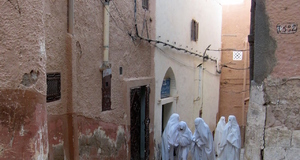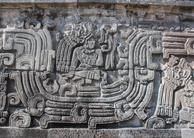Human Rights, Truth Commissions, and Anthropology in Latin America
By
2011, Vol. 3 No. 03 | pg. 2/2 | « In the aftermath of this violence, the Commission for the Historical Clarification was established. In 1997 the CEH was formally established and initially given six months to complete its work with the possibility of a six-month extension (Quinn and Freeman 1122). The head of the commission was appointed by the UN Secretary-General who then selected two Guatemalan nationals to be commissioners. Over a period of one and a half years, the commission visited 2,000 communities, registered 7,338 testimonies and completed its final report in February 1999 and released it to the public (Quinn and Freeman 1122). The report disclosed that the government had committed acts of genocide between 1981 and 1983 against groups of Mayan people. The commission was limited in several respects, including that it was only able to investigate a total of 100 cases and did not have a robust judicial system and did not hold public meetings (Quinn and Freedom 1124). During the commission, however, anthropology played an important role in locating mass graves, identifying victims and providing information to supplement the other documentation that the commission uncovered. The Argentine Forensic Anthropology Team located sites, did archeological examinations and lab work (Quinn and Freeman 1139).Yet the resources required to carry out forensic anthropology often make it impossible to carry out a considerable amount of burial examinations and make it so that the option is not available for every truth commission. Even so, it offers a vital source of information that supplements interviews, government documents, and other reports. Despite this involvement of anthropology in the process, anthropologists as a whole have taken a more critical view of truth commissions. Some have suggested that truth commissions exclude certain types of voice and can even create silence while others have suggested that truth commissions undermine the rule of law and instead retributive justice must be pursued. Wilson brings up the fact that truth commissions have been used by countries to cover up ongoing abuses. Instead of constructing the nation with regard to other nations they instead compare it with itself in the past and assert a discontinuity with that past. In effect, a new nation is forged in the aftermath of violence and suffering with the belief that none of the suffering of the past has continued into the present, which often is not the case (Wilson 371). Another issue that has been brought up by anthropologists is the challenge to the oft-cited assumption that truth commissions can promote healing. Several anthropologists state that there is no conclusive evidence that it promotes healing and instead it may harm the victim-survivors (Wilson 372). Also, anthropologists have taken issue with the type of information that is given precedence in truth commissions. They point out that only two paradigms of truth are given emphasis, those of forensic truth and narrative truth that is broken down into quantifiable acts. As a result, the reports released are often nothing more than a chronicle of wrong acts with no emphasis on women’s experience of abuse and the everyday, mundane aspects of oppression (Wilson 377). Finally, some scholars have suggested that in order for a country to truly move past gross human rights violations, past injustices much be prosecuted. Retributive justice alone can establish the state as a moral agent and restore legitimacy (Wilson 379). This is in contrast to the argument that reparations alone can offer a sense of closure for those affect and redress past wrongs (Laplante and Theidon 245). Reparation was used extensively in Peru after their Truth and Reconciliation Commission (TRC) of 2001-2003. Peru’s commission was established to investigate two decades of internal armed conflict that took place from 1980-2000 between guerrilla groups and the Peruvian armed forces. The Shining Path began its campaign to overthrow the Peruvian state in 1980 in the remote highlands and initiated a reign of terror. In response, the government started a brutal counter-insurgency that regarded Andean peasants as terrorists (Laplante and Theidon 232). When Alberto Fujimori was elected in 1990 he imitated strict measures including rewriting the constitution and dismantling political parties and other legal measures. Then, in September 1992 the Fujimori administration arrested the leader of the Shining Path and was Fujimori was given credit for pacifying the country (Laplante and Theidon 232). Then, in the aftermath of the corruption scandal during the presidential campaign in 2000 Fujimori fled the country and the interim government led by president Valentin Paniagua established the TRC through executive decree. When the TRC released its findings, it estimated that approximately 69,280 people had been killed or disappeared. They based this on 17,000 testimonies, fourteen public hearings and hundred of archives. In the report they stated that the Shining Path perpetrated 54 percent of the deaths and disappearances and that the armed forces were responsible for 37 percent (Laplante and Theidon 233). Laplante and Theidon argue that this commission was more successful than others because it went beyond the truth and offered a redress of past wrongs through reparations. The TRC designed the Program of Integral Reparations that included symbolic reparations, reparations in the form of services and also community-wide reparations. This was a way to satisfy the victim-survivors’ and society’s need for justice and to assist in rebuilding their lives. Opposed to retributive justice, reparations are a form of restorative justice, which the authors argue is just as effective as retributive justice (Laplante and Theidon 248). In the end, truth commissions are directly confronting the issues or reconciliation and memory. Memory work has occupied an important place in anthropology and slowly the field is becoming more involved in post-conflict studies and processes, including truth commissions. It is obvious that truth commissions are often burdened with many limitations and may not be enough to provide victims with the justice and truth they desire. Commissions that are not given the mandate to name names of perpetrators are less effective in establishing a narrative of violence as those who are. In addition, commissions that are in place along with blanket amnesty are susceptible to criticism. It has also been pointed out that truth commissions have allowed government to escape from blame for current abuses and its own past actions by declaring that the past is distinctly separate from the present while a real break has not occurred. Additionally, all voices must be heard in order for the real truth to get out. This requires participation from vast segments of the civil society, including marginalized groups. It is in this area that anthropologists can have the most impact. By utilizing their skills they can bring various voices to the public debate and allow some groups to have closure. Instead of not being involved in the process, anthropologists should point out current issues in truth commissions and other reconciliation processes and strengthen the process. In the larger realm of human rights, anthropologists should bring the local voice of human dignity into the conversation. More discussion needs to occur on what constitutes a human and what inherent rights are and if they truly are universal. Anthropologists should strive to preserve respect for cultural differences while at the same time accepting the universal code of human rights. By doing this they will be able to strengthen the universal human rights framework and make it one that truly represents human diversity. ReferencesBarry, T. (1992). Inside Guatemala. Albuquerque: Interhemispheric Education Resource Center. Good, Colleen. "Human Rights and Relativism." Macalester Journal of Philosophy 19.1 (2010): 27-52. Digital Commons, Oct. 2010. Web. 09 Dec. 2010. . Handy, J. (1984). Gift of the devil: A history of Guatemala. Boston, MA: South End Press. Laplante, Lisa J., and Kimberly Susan Theidon. "Truth with Consequences: Justice and Reparations in Post-Truth Commission Peru." Human Rights Quarterly 29.1 (2007): 228-50. Messer, Ellen. "Anthropology and Human Rights in Latin America." Journal of Latin American Anthropology 1.1 (1995): 48-97. Quinn, Joanna R., and Mark Freeman. "Lessons Learned: Practical Lessons Gleaned from Inside the Truth Commissions of Guatemala and South Africa." Human Rights Quarterly 25.4 (2003): 1117-149. Roht-Arriaza, Naomi. "Truth Commissions and Amnesties in Latin America: The Second Generation." Proceedings of the Annual Meeting (American Society of International Law( 92 (1998): 313-16. Sanabria, Harry. The Anthropology of Latin America and the Caribbean. Boston, MA: Pearson Allyn and Bacon, 2007. Stewart, Julie. "A Measure of Justice: The Rabinal Human Rights Movement in Post-War Guatemala." Qualitative Sociology 31.3 (2008): 231-50. Wilson, Richard. "Anthropological Studies of National Reconciliation Processes." Anthropological Theory 3 (2003): 367-87. Suggested Reading from Inquiries Journal
Inquiries Journal provides undergraduate and graduate students around the world a platform for the wide dissemination of academic work over a range of core disciplines. Representing the work of students from hundreds of institutions around the globe, Inquiries Journal's large database of academic articles is completely free. Learn more | Blog | Submit Latest in Anthropology |


















